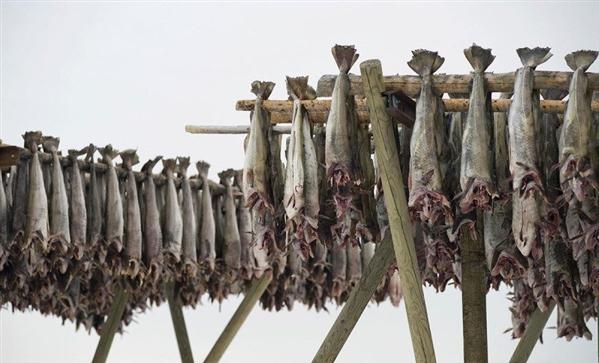
The Vikings freeze-dried the cod to keep them fresh. Image credit: Olaf Kruger
Norwegian cod may have arrived in Germany hundreds of years earlier than previously anticipated. And thanks to the creative Vikings. 1200 years ago, they learned to use freeze-drying techniques to keep cod fresh on long voyages.
Bastiaan Star and colleagues at the University of Oslo in Norway analyzed the DNA of 15 ancient cod samples. The samples came from 5 sites in northwestern Europe, the southernmost of which was Het Haab, Germany, which was a village during the Viking period.
By comparing these ancient DNA with genetic material from about 170 modern cod tissues, the researchers deduced that four cod samples from Het Haab originated in the northeast of the Arctic Circle, next to the northernmost tip of Norway. The relevant paper was recently published in the Proceedings of the National Academy of Sciences.
This suggests that Norwegian pirate ships would transport cod, but this journey of up to 2000 km would take at least 1 month. To keep the cod fresh, these pirates know how to freeze the fish. In winter, Arctic cod only spawn off the coast of Norway, a property that made them easy to catch during the Viking period. And the cold winter temperatures are also easy for these cod to be naturally frozen.
The researchers said the Vikings might have hung the fish in a ventilated place with wooden frames so that sea breezes and cold would freeze dry the fish. "Dried cod can be kept for at least 5 years if properly preserved." Star said.
The new study also shows that this is hundreds of years earlier than the earliest recorded method of preserving cod with salt around the 1690s. And the Vikings kept cod for long-distance sale,
"These early dried fish trades show that commodity exchanges have begun to emerge." Study collaborator James Barrett of the University of Cambridge in the UK said, "This may be gradually changing the relationship between people groups and people and natural resources." ”
In addition, Jeremy Searle of Cornell University noted that the study also added to the understanding of the influence of Viking. (Tang Yichen)